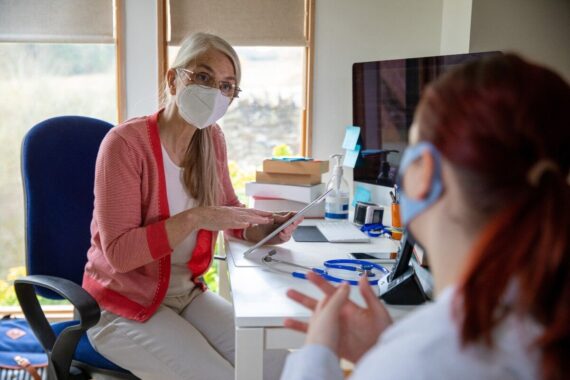NHS England has called for more secondary care doctors to work in primary care, either doing similar work to GPs or practising their specialty within multidisciplinary teams.
Primary care director Dr Amanda Doyle and medical director Steve Powis have written to the GMC to give their support to the regulator’s call to remove restrictions for general practice employing staff grade and associate specialist (SAS) doctors.
These are doctors who are skilled but are below consultant level and not receiving training.
The NHS England directors said they would like to see SAS doctors ‘to work as part of their wider multidisciplinary teams alongside the partners and salaried GPs as a way of expanding their clinical capacity’.
The proposal caused fears around a lowering of standards and concerns around whether it could lead to a return to the time before GP training became mandatory.
It would still have to be ratified by the UK Government in England, and the devolved nations’ parliaments through secondary legislation – a development that seems more likely now it has the support of NHS England.
In an NHS England webinar on Wednesday last week, Dr Doyle told GPs: ‘If you work in a hospital, you can employ staff-grade doctors to work alongside consultants, delivering care between them as part of a multidisciplinary team.
‘This is not allowed in primary care legally. We want to introduce the ability for general practice to employ staff-grade doctors to work as part of their wider multidisciplinary teams alongside the partners and salaried GPs as a way of expanding their clinical capacity.’
She also emphasised the importance of allowing doctors to come and practise their own specialty within primary care services, citing how this has been done with community services and across neighbourhoods.
Dr Doyle added: ‘If you think about the amount of work that is driven by complex frailty, elderly people, actually there’s a significant amount of our workload that could usefully be supported by having geriatricians for example, working as part of our practice teams, we can’t employ them at the moment.
‘Steve Powis, the NHS England medical director and myself have written to the GMC to allow those two changes to be made. And that’s about giving us the flexibility to widen our teams where we think it’s the right thing for us to do. It’s not about replacing GPs with people who aren’t trained GPs.’
The GMC estimates that SAS will be the largest cohort of doctors in the NHS by 2030. There are already 64,000 SAS doctors working in secondary care and they have grown by 40% in the past five years. At the same rate, there will be 50,000 more in five years’ time.
Pulse October survey
Take our July 2025 survey to potentially win £1.000 worth of tokens















NHSE have got their knickers in a twist and are scrabbling about with some even more impractical suggestions.
Dive in.
The water’s lovely.
You’re gonna love it.
Why are there so many IMGS in SAS posts ? because of systemic discrimination?. Make them consultants( given they are able to do their job as specialist in primary care) and let them see the same patient in secondary care. why do you want to destroy the primary care.
This is helpful and matches the opportunities and choices for practising in hospitals. The key next step is to ensure that these doctors have comprehensive and fair mechanisms to progress professionally in primary care, in the same way as those taking the traditional training route in primary care.
The current aim is to refer as much as the public wants. They have rights. And that’ll keep Consultants busy and prop up private sector overspill and procurements.
So win win. Hooray.
The NHS recruitment policy:
Employ other countries’ doctors in sh*t posts around the UK, stuff the nannying training bit, then do them at medical tribunal.
A little naive to anticipate comprehensive systems to ensure progression. They could merely announce fast track GP Conversion training. That would be expensive. Instead they will dump the training deficit (and vicarious risk on to primary care) with derisory training funding, if any.
Large companies will love them though the vicarious risk sits with the clinical directors and the poor docs will almost certainly be scapegoated just as Baby P doctor was whilst working within an unsafe service.
Causee anyone can do everything a GP does, with no need for any training in the speciality. Maybe they should just advertise down the job centre.
Currently PAs, Noctors and Paramedics staffing Primary Care so why not open the floor in similar way to SAS doctors? I bet Partners will welcome cheap labour.
But then again govt could just train up more GPs, couldn’t they? It takes three years though, and they want people to work now.